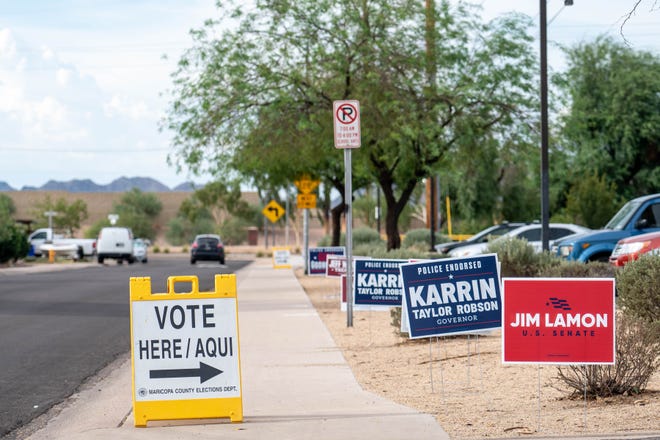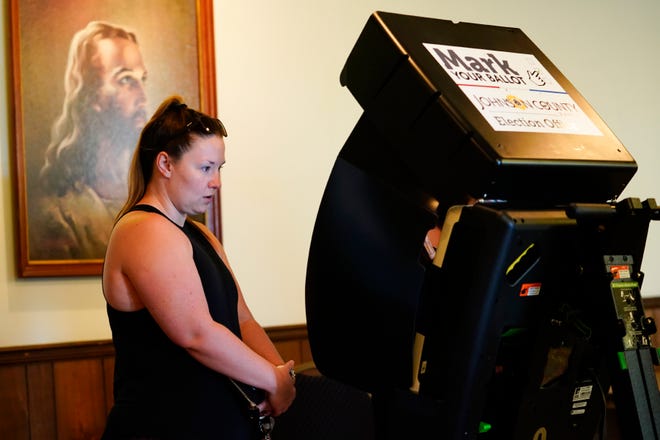- This week: Alex Jones on the stand, told to pay up
- Voters of color are concerned about violence, intimidation at the polls
- Judge refuses to move Oath Keepers’ trial date
I cover extremism at USA TODAY. The beat that can take me to dark corners of the internet, court hearings for the Jan. 6 riot or street protests anywhere in the United States.
Every week, we’re learning about new developments and revelations that paint a clearer picture of the extremist groups, and mindsets, affecting life in America. And every week there are new snippets of extremist news that warrant attention.
For subscribers:How a network of researchers is searching for the next hate-fueled attack
This week, the world had its eyes on the high-profile legal case against conspiracy-theory broadcaster Alex Jones. We’re also monitoring the trial of Oath Keeper Stewart Rhodes. And one extremism research group has new data on how these ideas could hinder voters.
Alex Jones trial
Alex Jones on the stand, told to pay up: The Infowars founder and conspiracy monger took the stand in a defamation trial in Austin, Texas, with often explosive results. Jones, who is accused of defaming the family of a boy killed in the Sandy Hook Elementary School massacre, was admonished several times by the judge. “This is not your show,” she told him.
- On Thursday, Jones was ordered by the jury to pay more than $4 million in compensatory damages, with likely millions more to come in punitive damages.
- A real bombshell came on Wednesday when a lawyer told a visibly shocked Jones his attorney had accidentally sent him “an entire digital copy of your entire cellphone, with every text message you’ve sent for the past two years.” The Jan. 6 committee, which has already interviewed Jones, almost immediately requested those messages.
- A takeaway: The parent company of Infowars declared bankruptcy during the trial, but lawyers presented evidence the site was making $800,000 a day in 2018. The fight will soon turn to how to get Jones to pay up.
Intimidation at the ballot box
Poll: Voters of color are concerned about violence, intimidation at the polls: Almost a third of Americans fear a violent attack on Election Day or voter intimidation, and a minority of Black and Hispanic voters feel safe at polling places, according to a new poll published Thursday by the Global Project on Hate and Extremism.
-
The poll showed just 28% of Black voters and 37% of Hispanic voters feel safe at polling or voting places. Black and Hispanic respondents also expressed elevated concerns about extremist groups, terrorism and mass shootings. Read the full study here.
- One way to think about this poll: Much has been written about how violent threats are affecting election workers. We’ve seen less about how the idea of these threats may put a chill on voters themselves.
Oath Keepers founder on trial
Judge refuses to move Oath Keepers’ trial date: Stewart Rhodes, founder of the extremist militia group the Oath Keepers, along with 10 other Oath Keepers, faces 17 criminal counts, including a seditious conspiracy charge in relation to the Jan. 6 riot. The charge carries a maximum sentence of 20 years in prison.
- The trial for the case is due to start next month, but defense attorneys have sought to have the trial date pushed back. On Monday, U.S. District Court Judge Amit Mehta ruled the trial date will not be changed and will go ahead as planned.
- Of note: Rhodes also has sought to have the trial moved out of Washington, D.C. The judge said no to that, too.
More from USA TODAY
For subscribers:In Uvalde one month later, moments of silence, yet so much left to say
For subscribers:The great white shark mystery in Southern California




